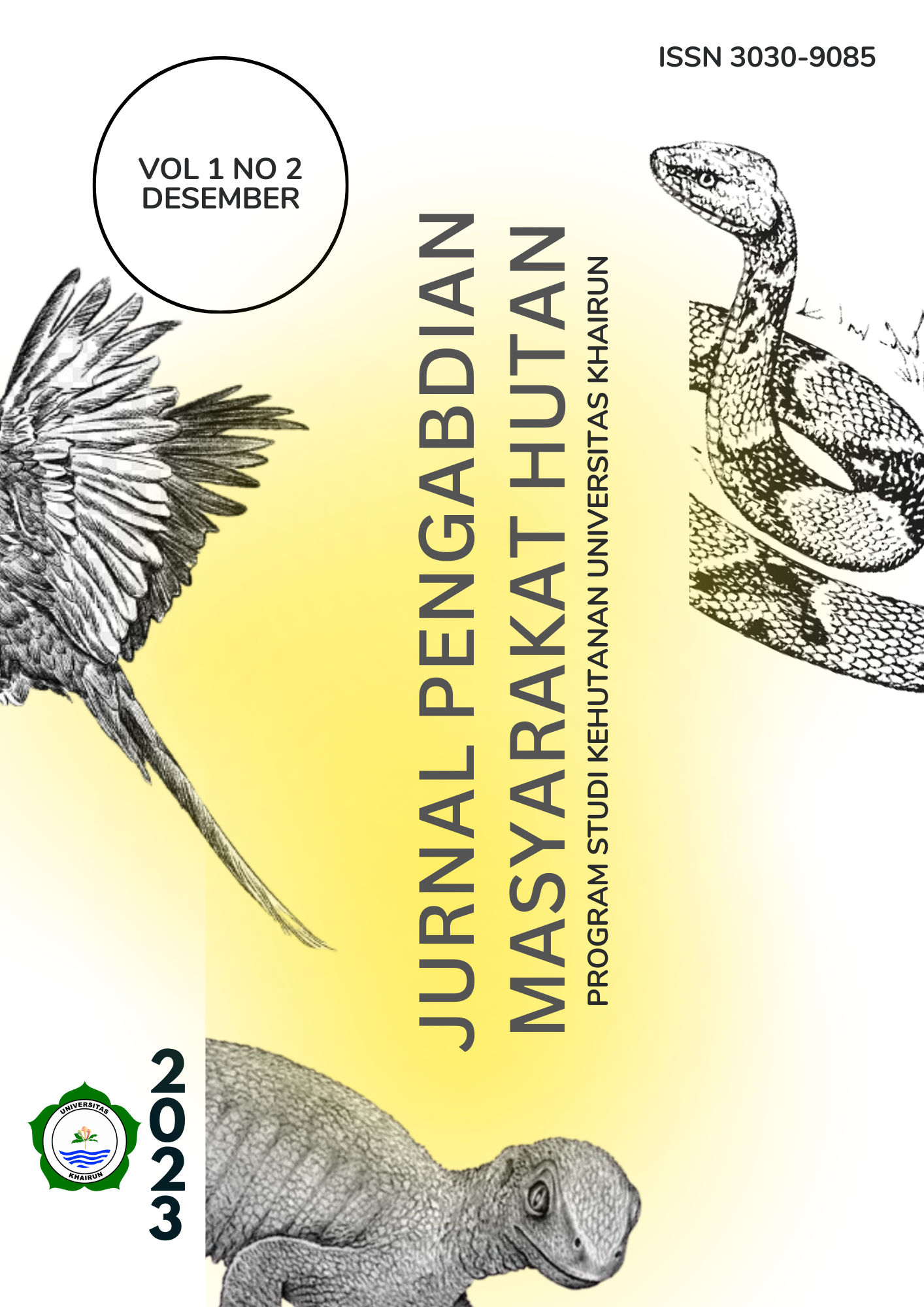Aplikasi Biosaka dan Biochar Pada Lahan Tanaman Hortikultura di Pulau Ternate
Isi Artikel Utama
Abstrak
The production of curly chili and tomato plants as well as resistance to anthracnose and fusarium attacks on farmers' land in Sulamadaha and Kastela Villages, Ternate City, currently has the potential to decrease compared to its potential in recent years. Plant production and resilience are expected to decline as the soil health of agricultural land declines. Soil health on chili and tomatoes is determined by land management systems such as fertilization, pest and disease control, from planting to harvest. The problem approach in the management of soil health is carried out through counseling and product-making training to improve soil health. The problems agreed to be resolved through counseling are the introduction of healthy soil characteristics, how to maintain healthy soil, sources of plant nutrients from natural materials, and plant cultivation systems. Product training activities include how to select biosaka and biochar raw materials, methods for making products, and methods for applying products to plants and on agricultural land. Activities are carried out through several stages: counseling, training, and implementation. Measurement of farmer's understanding of extension and training materials is carried out through evaluation before the activity (pre-test) and at the end of the activity (post-test). The standard of success is determined through indicators of increasing understanding and mastery of the material by 25 percent from pre-test to post-test. After the application of biosaka and biochar products, plant performance is measured through plant height, number of branches, and production. The training activities increased the material mastery by 48.68% for biosaka and 70.37% for biochar. The highest curly chili production was 0.94 kg tree-1 harvest-1, and tomato production was 0.59 kg tree-1 harvest-1.

